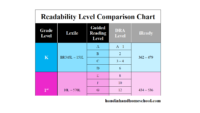Accessing IEPs as a Homeschooler
If a homeschool parent suspects their child may have a learning disability, they can request a free evaluation through their local public school. Governed by the Individuals with Disabilities Education Act (IDEA), all public schools in America are required to provide this Child Find service.
Once your local public school receives your written request, they are bound by the federal IDEA law to conduct the testing. Should the school decline to conduct an evaluation, they must provide you with a written explanation. You may follow the due-process procedures to appeal the decision.
Steps For Accessing Special Education Services:
- Submit your request in writing for a Child Find evaluation.
- Once the school receives your written request, they must conduct the evaluation within 60 days.
- An evaluation is more than a screening conducted by a special education teacher.
- An evaluation must be conducted in a manner “most likely to yield accurate information on what the child knows and can do academically, developmentally, and functionally“. If a homeschool child has limited English proficiency, then the evaluation must be conducted in the child’s native language.
- Because an evaluation must include a variety of data on the child, a parent will be asked to provide information about their child, including work samples. The inability to not observe a homeschool child in a traditional classroom is not grounds for refusing an evaluation.
- Once the battery of testing is completed, the parent will be called in for an Individualized Education Plan (IEP) meeting to discuss the results of the testing.
- You may request to receive a copy of the test results and reports prior to or during the IEP meeting.
- The IEP team will explain if your child has been found to be eligible for special education services, as defined by IDEA.
- Depending upon the state you live in, the special education services may only be accessed if you enroll your child in the public school.
Disabilities That May Qualify for Special Education Services
Federal law defines the basic categories of disabilities that may receive services through IDEA. Some states, like Maryland, may identify additional disabilities that qualify for special education services. Children who have more than one challenge may be identified as multiply disabled. Each disability code lists specific criteria that must be met through a comprehensive evaluation.
Cognitive Disabilities
- Autism
- Emotional disability
- Intellectual disability
- Specific learning disability
- Speech or language impairment
- Traumatic brain injury
Physical Disabilities
- Deafness
- Hearing Impairment
- Deaf-blindness
- Visual impairment, including blindness
Physical Disabilities
- Other health impairments, such as:
- Asthma
- ADHD
- Diabetes
- Epilepsy
- Heart conditions
- Lead poisoning
- Leukemia
- Tourettes syndrome
- Other impairments
- Orthopedic impairments, such as:
- Missing limbs
- Cerebral palsy
- Other impairments
Last modified on April 15, 2020




